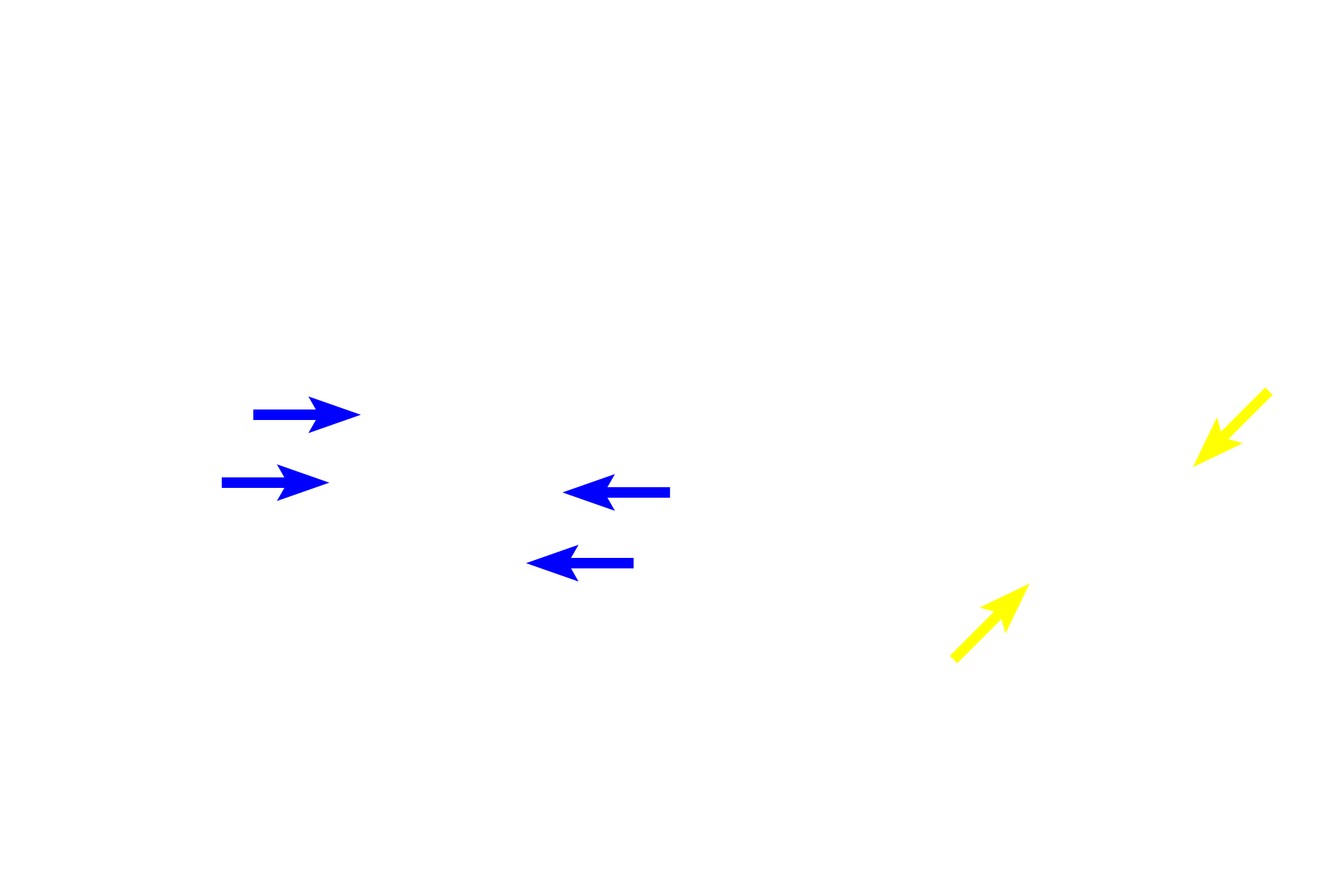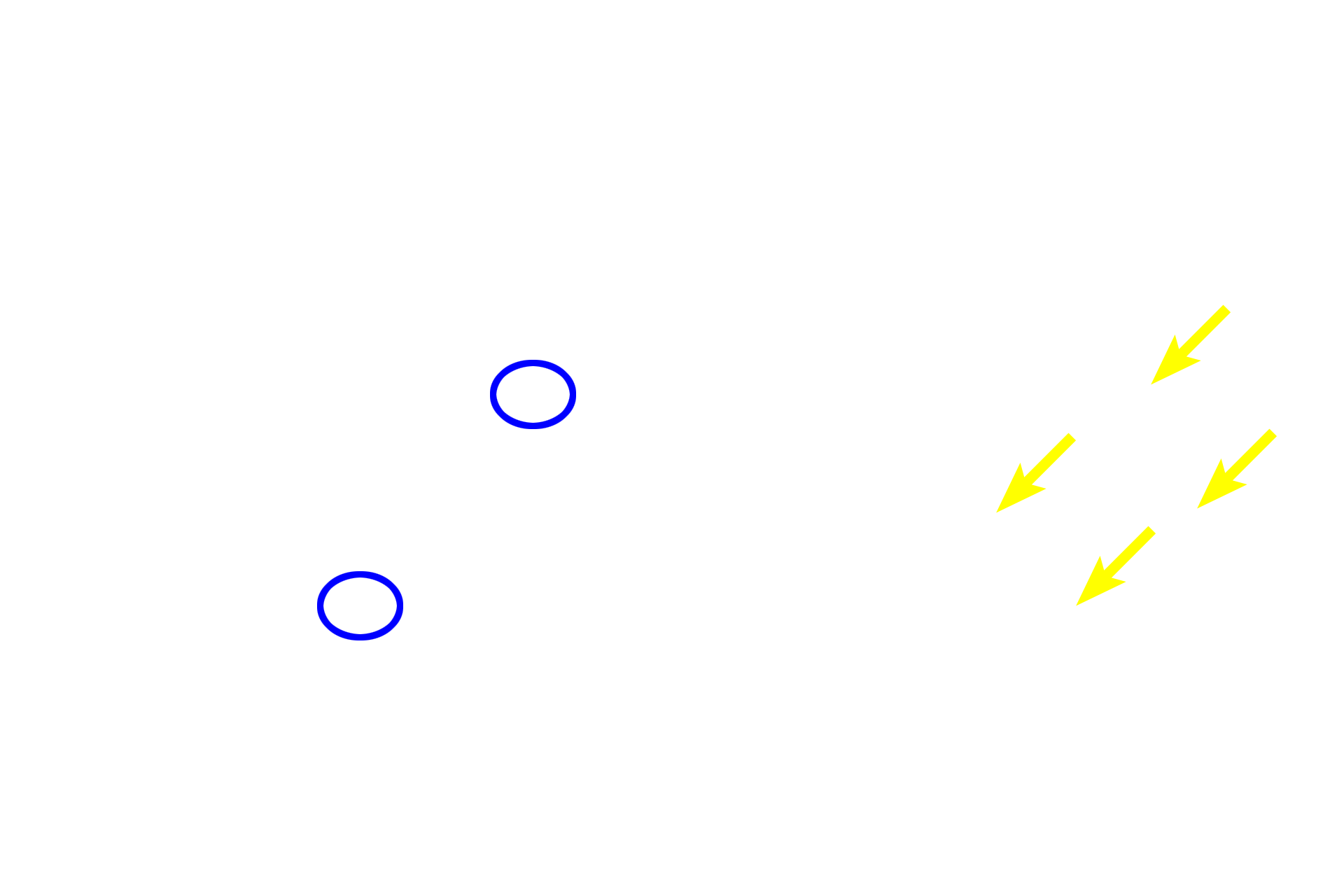
Anaphase
Anaphase begins abruptly as sister chromatids separate and are drawn toward opposite poles of the cell. The movement of the chromatids occurs by the shortening of the spindle fibers and movement of the spindle poles away from each other. The end of anaphase is marked by the segregation of an identical set of chromosomes at each spindle pole.

Early anaphase cell
Anaphase begins abruptly as sister chromatids separate and are drawn toward opposite poles of the cell. The movement of the chromatids occurs by the shortening of the spindle fibers and movement of the spindle poles away from each other. The end of anaphase is marked by the segregation of an identical set of chromosomes at each spindle pole.

Mid-anaphase cell
Anaphase begins abruptly as sister chromatids separate and are drawn toward opposite poles of the cell. The movement of the chromatids occurs by the shortening of the spindle fibers and movement of the spindle poles away from each other. The end of anaphase is marked by the segregation of an identical set of chromosomes at each spindle pole.

Chromosomes >
Sister chromatids are separated from each other following the breakdown of cohesive proteins holding them together at the centromere. Chromatids are then drawn to opposite poles by the pulling force of the kinetochore microtubules. Once separated, chromatids are referred to as chromosomes.

Centromeres
Sister chromatids are separated from each other following the breakdown of cohesive proteins holding them together at the centromere. Chromatids are then drawn to opposite poles by the pulling force of the kinetochore microtubules. Once separated, chromatids are referred to as chromosomes.

Centrosomes
Sister chromatids are separated from each other following the breakdown of cohesive proteins holding them together at the centromere. Chromatids are then drawn to opposite poles by the pulling force of the kinetochore microtubules. Once separated, chromatids are referred to as chromosomes.

Mitotic spindle >
The mitotic spindle consists of two types of microtubules. Kinetochore microtubules (blue arrow) attach to chromatids, drawing them toward the spindle pole. Non-kinetochore microtubules are of two types. One set overlaps opposing microtubules to push the spindle poles away from the midline (red arrow); the second extends radially from the spindle apparatus (black arrow).
 PREVIOUS
PREVIOUS